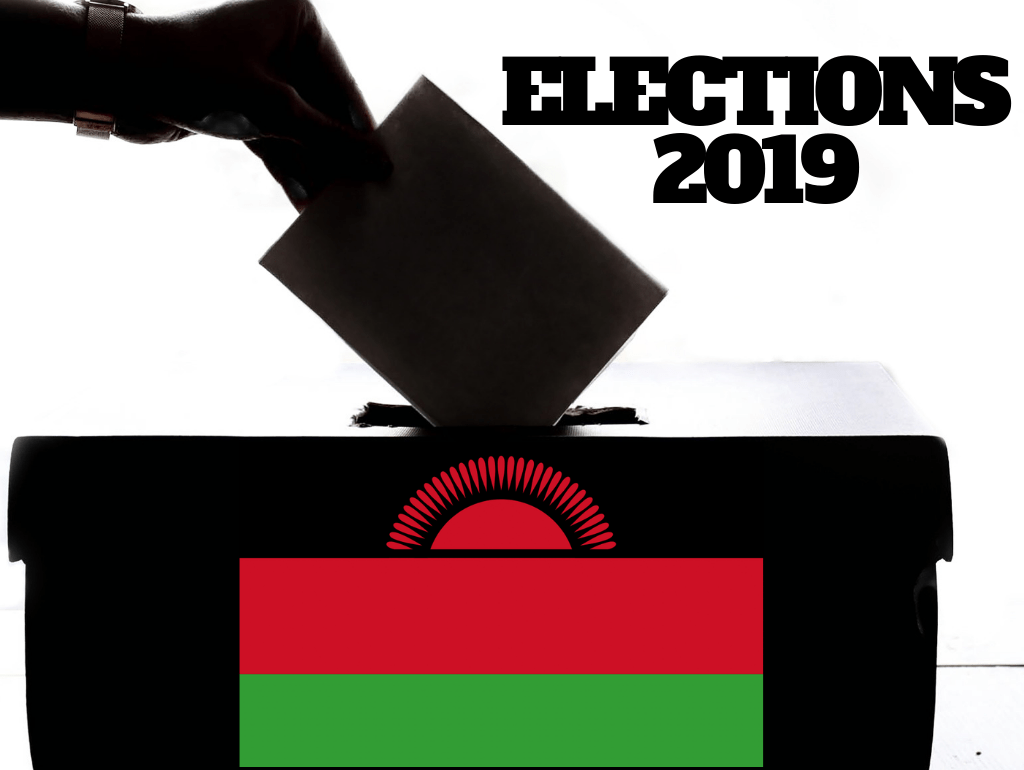On 21 May, Malawi goes to the polls to vote for the president, members of parliament and local councillors. The fifth elections since the country’s return to multiparty democracy, these could be the most tightly-contested yet.
Malawi uses first-past-the-post system, meaning whichever candidate gets the most votes in the single round of voting wins. In the last elections in 2014, this allowed Peter Mutharika to become president with just 36%. In 2017, a special law commission recommended that the country switch to system that requires the victor to win a 50%+1 majority, but parliament rejected the proposal. This means that the same system is in place for 2019’s crowded race and it is likely that the victor will win with less than even 30%.
There are seven candidates running for president, of which three are in with a chance. President Mutharika of the ruling Democratic Progress Party (DPP) has advantages as the incumbent, though he has done enough during his first term to expect an increased mandate. Lazarus Chakwera, leader of the main opposition Malawi Congress Party (MCP), will be looking to do one better than in 2014 and capitalise on frustrations with the current government. And thirdly, Vice-President Saulos Chilima, who defected from the ruling party to establish UTM in July 2018, could spring a surprise.
Close race to State House
Malawi faces a myriad of socioeconomic problems. More than half the population live in poverty, just 11% of people have access to electricity, and the economy relies heavily on agriculture which is vulnerable to external shocks. Malawi’s young population also suffers from high unemployment, and job creation has so far been the outstanding issue in the election campaign.
When it comes to 21 May, however, it is likely that voting patterns will be clustered according to Malawi’s three regions, as has been the case in the previous elections.
The ruling DPP’s stronghold is the Southern Region, especially around Mutharika’s home area of the Lhomwe belt. The party has also traditionally done well in the Central Region’s district of Ntcheu, where the president’s running mate Everton Chimulirenji is from.
This strategy could, however, be complicated by the candidacy of Vice-President Chilima and running-mate Michael Usi, which mirrors the Mutharika- Chimulirenji ticket. Chilima is from Ntcheu and comedian Usi from Mulanje in the Lhomwe belt.
Vice-President Chilima fell out with Mutharika and left the DPP in 2018. He took some senior party members with him and formed the UTM. This new party has grown tremendously. In less than a year, it has established itself as a real contender in the upcoming elections, though it remains to be seen if voters will be prepared to vote in a pair with little political experience. 46-year-old Chilima had not held political office before 2014 and Usi is a political newcomer.
Hoping to take advantage of these complications is the MCP. This long-standing party ruled Malawi from 1964 to 1994, mostly under a one-party system in which President Hastings Banda often resorted to brutality and human rights abuses. More recently, however, leader Chakwera has led a resurgence in the party and managed to shake off some of the MCP’s historical reputation.
In 2014, Chakwara lost the elections by just 448,519 votes and established the MCP as the country’s official opposition in parliament. He finished ahead of then president Joyce Banda, who is now in an electoral alliance with the MCP. This and other partnerships could help the main opposition extend its support from beyond its stronghold of the Central Region. In 2014, Banda did well in the Northern Region and is from the eastern part of the Southern Region, while Chakwera’s running mate Sidik Mia is a former MP in the Chikwawa district in the far south.
After the vote
The tight contest means that there is a good chance the elections results will be disputed. In fact, both Mutharika and Chilima appear to be preparing for such an outcome and have accused each other of plotting to rig the vote. This not only arguably marks a new low point in the relations between the president and his deputy, but could reflect how much is riding on the election for the DPP and UTM.
Unlike the MCP, which has survived as an opposition party for decades, the DPP and UTM could struggle if they do not win. At 78 years old, Mutharika would be unlikely to contest again and the DPP may find it difficult to stay intact without him. Meanwhile, there is a good chance Chilima will abandon politics if he does not become president. He is not running to be an MP and could easily return to the private sector, where he previously had a successful career, if he does not get his way.
The close race also suggests that parliament is likely to be heavily divided. This could mean that smaller parties such as the former ruling United Democratic Front (UDF) could prove significant. Since 2014, Mutharika has had to enrol the support of that opposition party’s 14 MPs to pass legislation. In return, party leader Atupele Muluzi has been made a member of the cabinet, while the corruption case against former president Bakili Muluzi, Atupele’s father, has stalled.
Following the 21 May 2019 vote, the UDF and other smaller parties may again be looking to be the king-makers in what is set to be a divided contest. Whether they will be negotiating with the DPP, UTM or MCP remains too close to call less than a week before the vote.
This article was first published by African Arguments



